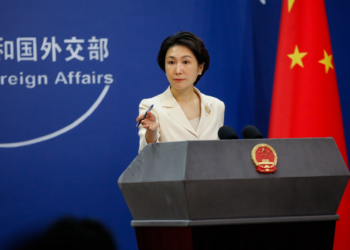A Memorandum of Understanding (MoU) was finalized last week in Zhengzhou, China, to launch a Traditional Chinese Medicine (TCM) clinic in Islamabad, marking a pivotal effort to incorporate TCM methodologies into Pakistan’s contemporary healthcare framework. The facility will specialize in treating chronic and stress-induced ailments such as coronary artery disease, thyroid and breast nodules, vertigo, varicose veins, insomnia, and anxiety disorders. Beyond clinical services, the initiative will advance TCM training and certification programs, foster cross-border medical collaboration, and stimulate academic dialogue between practitioners.
The agreement was formalized between the Belt & Road Medical Association (BRMA), a subsidiary of the Belt and Road Initiative for Sustainable Development (BRISD), and the Guan’ai Future Traditional Chinese Medicine Clinics Project. Fully funded by Guan’ai Future, the partnership paves the way for potential TCM expansions across Pakistan’s urban centers.
Dr. Shahbaz, Director General of BRMA, emphasized the association’s mission: “BRMA is committed to advancing medical knowledge exchange, holistic healthcare solutions, and shared progress among Belt and Road nations. This collaboration amplifies TCM’s global influence as a cornerstone of integrative medicine.” Peter Du, Director of the Guan’ai Future TCM Clinics Project, hailed the venture as transformative. “This initiative transcends healthcare—it is a cultural conduit uniting China and Pakistan through the legacy of TCM,” he stated.
The partnership will be showcased at the inaugural Annual Conference on Future Traditional Chinese Medicine in Changsha, China, in June 2025, where global experts will deliberate on TCM innovation. Qaiser Nawab, Chairman of BRISD, clarified regulatory protocols for the Islamabad clinic, noting that registration follows standard provincial Healthcare Commission guidelines, requiring compliance with infrastructure, hygiene, and practitioner qualifications.
“Clinics may register as corporate entities via the Securities and Exchange Commission of Pakistan (SECP) or as sole proprietorships under the Federal Board of Revenue (FBR),” Nawab explained. “All TCM practitioners must obtain accreditation from the Pakistan Medical and Dental Council (PMDC) or National Council for Tibb. Imported TCM products require approval from the Drug Regulatory Authority of Pakistan (DRAP), alongside municipal trade licenses.”
The project underscores deepening Sino-Pakistani ties in healthcare innovation, positioning TCM as both a therapeutic and diplomatic asset.
















